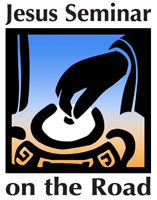This is pretty much the opposite of an overture that was sent by Foothills Presbytery. Check Gene TeSelle's column in the Fall Network News for an analysis of that overture (p. 8).
We need more action for social justice and more voices heard, not less.
A Gospel Vision for the Church
Overture on choosing to be a church committed to the gospel of Matthew 25
The Presbytery of Cascades overtures the 222nd General Assembly (2016) of the PC (USA) to:
Recommit ourselves at the congregational, the mid-council governing bodies, and the national levels of our church to locate ourselves with the poor, to advocate with all of our voice for the poor, and to seek opportunities to take risks for and with the poor (in the soup kitchens and catholic worker houses, among the immigrants, with those working to end mass incarceration, and with those who seek to protect all of us, especially the poorest of the poor around the world, from the vagaries of climate change).
Call on our churches to commit to a year of bible study focused on issues of social justice.
Call on our Presbyteries and Synods to examine their own practice, placing these commitments at the center of their concerns, and to streamline the way that issues of immediate significance can be forwarded to the General Assembly by adopting procedures so that overtures and proposals on peacemaking and social justice concerns from sessions and committees may be considered quickly.
Facilitate the processes by which these concerns can be brought before us as a national body by resisting new barriers to overture submissions such as additional concurrences, tighter deadlines, or new overture topic restrictions at any General Assembly.
Commit to focusing a significant block of the time alloted for future General Assemblies on creating opportunities in consultation with the Committees on Local Arrangements to engage all of the commissioners, delegates, and observers in acts of service to and with communities at risk.
Assure that there are voices of those who are most at risk from within our church and outside of it (including interfaith voices), who are invited to share with and challenge the assembly, both in the plenary and committee sessions.
Create a “cycle of social engagement” that will assure that concerns around confronting racism, environmental concerns, standing against violence and militarism, and advocating for the dispossessed come before the Assembly on a regular and consistent basis, soliciting overtures from presbyteries before each General Assembly on topics of the most immediate concern.
Rationale
This is a moment of great opportunity for our church. Momentum is building within our denomination and throughout our society to courageously confront the challenges of our time. A new Civil Rights movement, a new Peace movement, a new Economic Justice movement is on the rise and we are in a position to stand in solidarity with the poor in a uniquely powerful way. It is a time for us to define who we will be for decades to come. May we choose to be a church committed to the gospel of Matthew 25:
In the Parable of the Ten Bridesmaids Jesus tells a story about the church waiting for the moment of the Lord’s arrival. Some of those who are waiting are prepared when the time comes, and some are not. The zeitgeist of our age is one of rapidly changing and endlessly creative activism exemplified by the Black Lives Matter movement. Let us be like the bridesmaids whose lamps are trimmed - ready to seize the moment.
In the Parable of the Talents Jesus tells a story about a bold slave who was punished for refusing to participate in the empire value of domination. Increasingly we see brave individuals and groups calling out the powerful and standing against the rampant exploitation in our marketplaces, in our prisons, and on our streets. Let us resist evil like that slave, and go stand on the margins of society - in the outer darkness.
In the Parable of the Judgment of the Nations Jesus tells a story about how he is encountered among “the least” - the poorest, the most isolated, the imprisoned, the sick, and the hungry. We hear with sober conviction Jesus declaring that a church which fails to serve with and for the poor does not know Him. We agree with Pope Francis who stated that a church that is not actively supporting and serving the needs of the poor has no right to call itself church at all and should be prepared to give up its tax-exempt status to operate as a church. Let us be counted among the sheep who met their King as a stranger.
We see the Spirit blowing through our society, bringing to fruition seeds of peace and justice long dormant. The harvest will be plentiful. Let us heed the call to service, and recommit ourselves to the proclamation of the gospel of Jesus Christ in deeds as well as in words.














